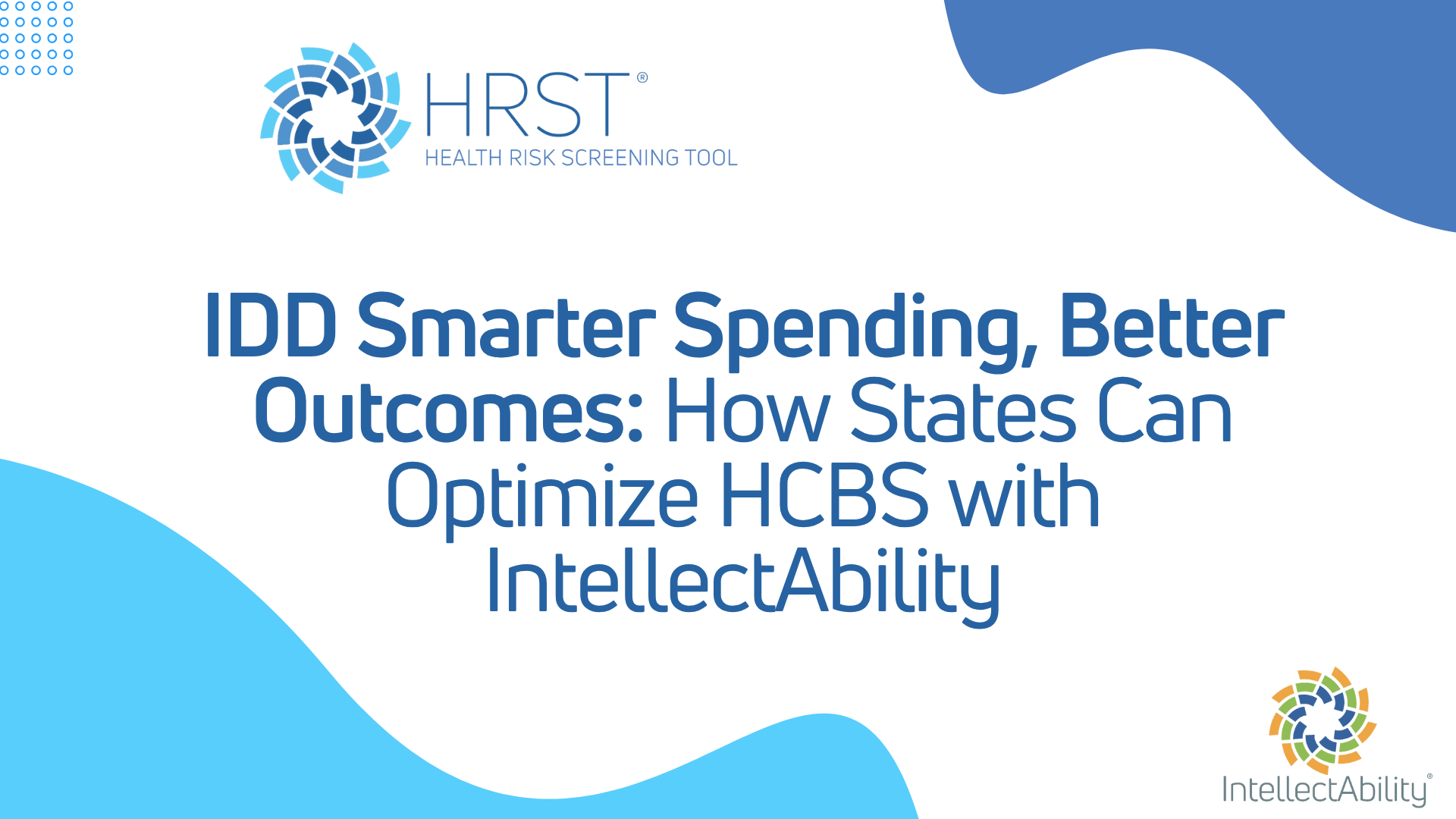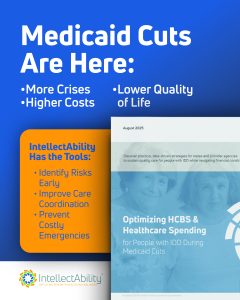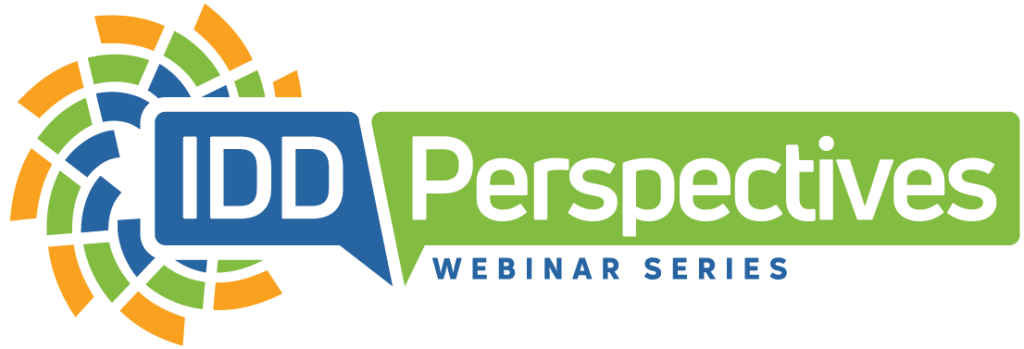
IDD Smarter Spending, Better Outcomes: How States Can Optimize HCBS with IntellectAbility
 By Aliah Farley
By Aliah Farley
Medicaid programs across the country face a familiar challenge: rising demand, finite budgets, and a system too often forced into crisis response. The question isn’t whether states can keep spending more, it’s whether they can spend smarter.
That’s where home- and community-based services (HCBS) come in.
HCBS programs provide services through various agencies and providers, improving access to support for people with intellectual and developmental disabilities (IDD). HCBS has proven to be cost-effective and person-centered, but without strategic shifts in funding and measurable outcomes, states risk pouring dollars into preventable emergencies rather than proactive support, missing the opportunity to positively impact people with IDD and their communities.
More on Intellectual and Developmental Disabilities
Intellectual and developmental disabilities (IDD) are a broader category of lifelong conditions that are present from birth or early childhood and affect a person’s physical, intellectual, and emotional development.
Intellectual disability starts before age 18 and is characterized by limitations in intellectual functioning—such as intelligence, reasoning, problem solving, and other skills—and adaptive behavior, which includes everyday social skills, and other skills needed for daily living.
These disabilities can affect multiple body systems and impact communication, eating, and social interaction skills. Examples of intellectual or developmental disabilities include autism, cerebral palsy, spina bifida, hearing disorders, and other disabilities and disorders.
Prevention That Pays Off
For people with intellectual and developmental disabilities (IDD), hospitalizations are costly and disruptive. IntellectAbility’s Health Risk Screening Tool (HRST) empowers states and agencies to identify medical risks early, flagging subtle changes in health before they escalate into expensive hospitalizations.
By implementing the HRST across HCBS programs, states can reduce unnecessary costs while improving support quality. Early detection doesn’t just save money; it strengthens the system for providers and, most importantly, the people receiving support.
Data-Driven Decision Making
Medicaid leaders need more than historical claims; they need actionable insights.
With HRST, agencies can aggregate risk data to predict potential crises, enabling states to target interventions where they’ll have the most significant impact. This data helps in situations where patients may require specific treatments or interventions, supporting more precise and effective support.
Combined with Person-Centered Thinking (PCT) Training, staff are equipped to act on this data thoughtfully, ensuring support aligns with the person’s needs while maximizing efficiency. A clear understanding of the data allows agencies to allocate resources more effectively and improve outcomes.
Together, the HRST and PCT Training provide a comprehensive framework for informed, outcome-driven decision-making.
Value-Based Funding That Works
Fee-for-service models reward volume, not outcomes, whereas value-based funding aims to improve outcomes for persons with disabilities by focusing on measurable progress and individual rights.
IntellectAbility’s tools support a shift to value-based support by connecting risk detection, workforce training, and person-centered planning with quantifiable health and quality of life improvements. They help address discrimination and support equitable systems in compliance with relevant law.
Key outcomes states can track for intellectual and developmental disabilities include:
- Reduced avoidable ER visits and hospitalizations
- Increased preventive care compliance
- Enhanced person-centered outcomes
These outcomes have positively affected people with IDD, allowing them to experience better health and greater independence.
When funding models reward prevention and stability, everyone benefits: the system, the providers, and the people served.
Building Efficiency Across the Community-Based Services System
Workforce shortages, high turnover, and administrative burdens drive costs up.
IntellectAbility’s Academy provides scalable, accredited training to upskill direct support professionals (DSPs) and agency staff, reducing variability in support delivery. The training is delivered in partnership with centers and institutions to assist staff in providing high-quality support. The Academy offers a variety of training materials and resources to support ongoing staff development. Combined with PCT, this strengthens staff capabilities, reduces burnout, and ensures consistent, high-quality services.
States that leverage the HRST, PCT Training, and the Academy in their community-based services can streamline operations, better use limited funds, and reinforce a culture of proactive support.
Rethinking Medicaid Strategy
Spending smarter doesn’t mean cutting corners.
By integrating the HRST for risk detection, PCT Training for workforce development, and the Academy for scalable training, states can drive better health outcomes, reduce costs, and strengthen the HCBS system for the future. Medicaid strategies must address the needs of people with disabilities due to injuries, age, and other conditions, ensuring that healthy outcomes remain the ultimate goal.
Read more about these strategies and how IntellectAbility can help in our newest white paper, Optimizing HCBS and Healthcare Spending for People with IDD During Medicaid Cuts, which also considers world best practices and the role of organizations like the Social Security Administration in defining disability.




